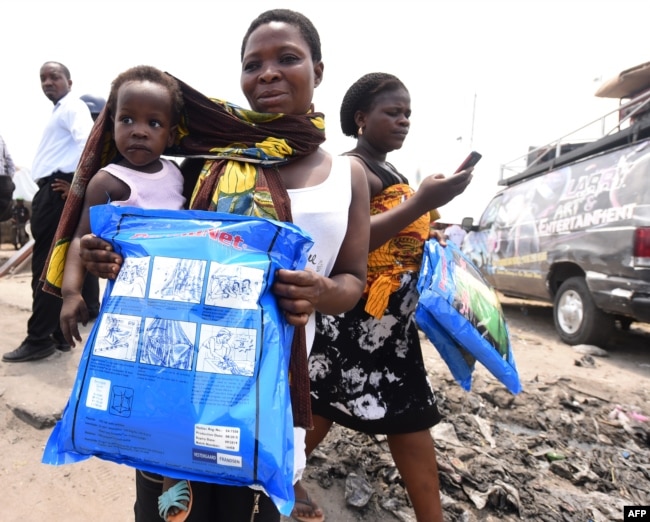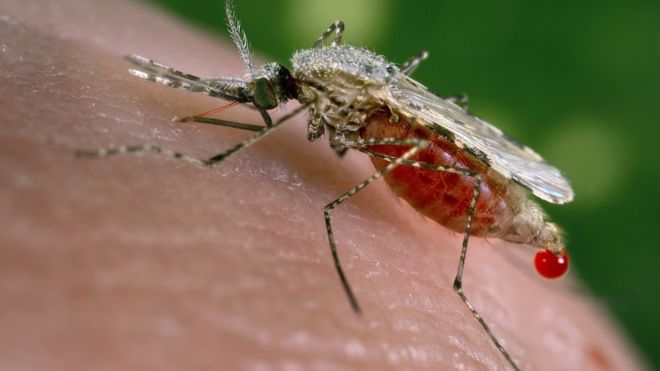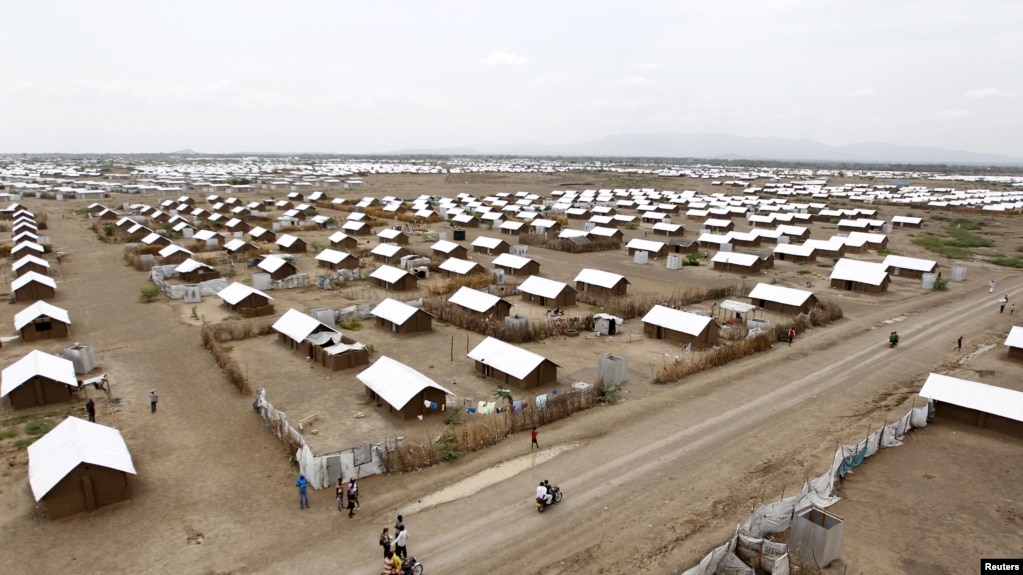But a World Health Organization report warns that in other areas, progress has stalled. Malaria cases increased by more than 20 percent from 2015 to 2016 in eight African countries — including Rwanda, Nigeria and the Democratic Republic of Congo. At the same time, funding for malaria prevention and treatment has leveled off, reaching $2.7 billion in 2016, less than half of the 2020 target. "That amount of funding internationally has plateaued; possibly it has reached the realistic maximum now," said David Conway, a professor from the London School of Hygiene and Tropical Medicine. "And it has always been assumed, indeed it has been important that countries themselves should commit to funding malaria control. And I think the big opportunity now is for those countries to step up and realize that this is good value."

A woman carrying a baby holds a treated mosquito net during a malaria prevention action at Ajah in Eti Osa East district of Lagos, Nigeria
Overall, Africa continues to bear the highest burden of the disease, with approximately 401,000 deaths in 2016, a slight decrease from the previous year. In addition to improving the coverage of existing methods of malaria prevention, the WHO calls for urgent investment in new tools. "More research is needed to develop an effective malaria vaccine that could cover the populations that, at the moment, have high malaria rates and that, perhaps, do not use the available interventions even when they are being funded," Conway said.
Several malaria vaccines are under development. The WHO is planning a major trial of the so-called RTS,S vaccine starting next year in Kenya, Ghana and Malawi. However, its latest report warns the world is at a crossroads. Without better funding and more effective rollout of tools to tackle malaria, the progress made in recent decades could be undone.
https://www.voanews.com/a/who-global...s/4141361.html


 The Military and Veterans' Room
The Military and Veterans' Room


 Reply With Quote
Reply With Quote






